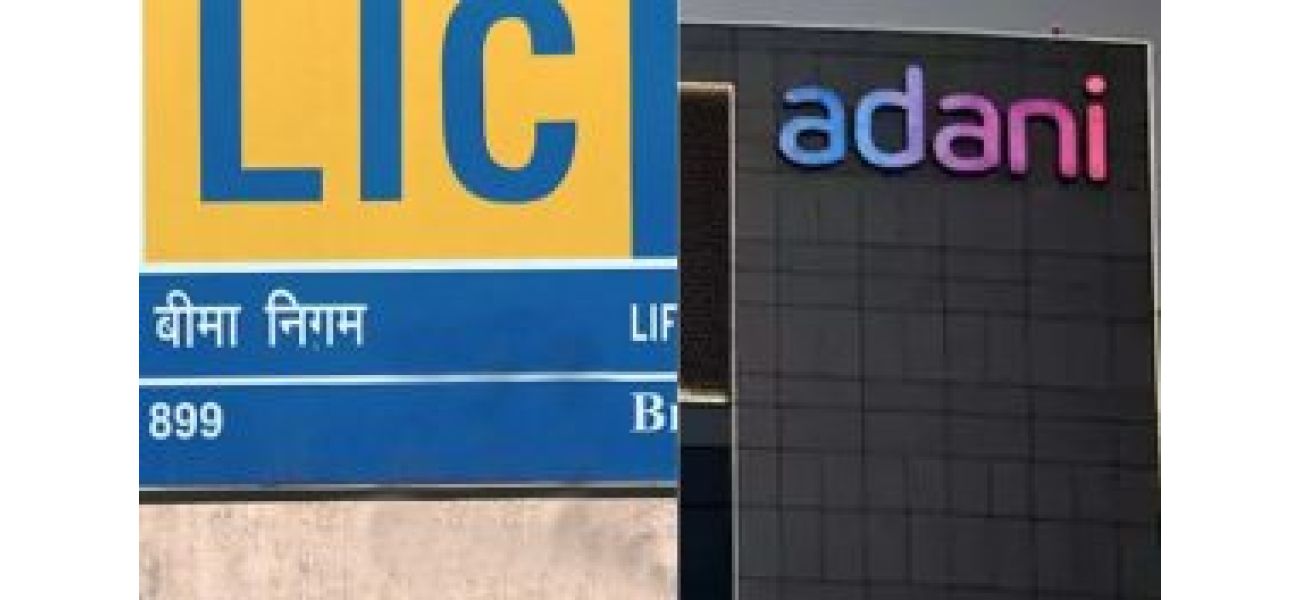Corrupt friends get everything.
A report from The Washington Post highlights India's problem with crony capitalism and rent-seeking, revealing that the government influenced LIC to invest heavily in Adani Group's securities.
October 27th 2025.

In a recent article published in The Washington Post, the pervasive issue of crony capitalism and rent-seeking in India has been brought to light once again. The report reveals that the government of India, through the Life Insurance Corporation of India (LIC), made significant investments in Adani Group's securities after they faced major losses in the stock market.
According to the article, government officials worked together to steer approximately $3.9 billion towards Adani's businesses from LIC. This plan was reportedly created by officials at DFS, in coordination with LIC and India's main government-funded think tank, Niti Aayog, and was approved by the Finance Ministry. However, LIC has denied these allegations, calling them "false, baseless, and far from the truth."
This news has caused quite a stir in India, with the Congress party demanding an investigation by the Parliament's Public Accounts Committee. The allegations that LIC, one of the world's largest institutional investors, was influenced by the government to invest in a specific conglomerate raises concerns about the government's influence in the financial markets. It also raises questions for the policyholders of LIC, who trust the company with their life savings.
Despite LIC claiming that their investments were guided by careful financial strategies and due diligence, their holdings in Adani companies have grown significantly over the years. In 2022 alone, LIC's exposure to Adani companies crossed Rs 30,000 crore, a substantial amount for a public institution managing policyholders' funds.
The Adani Group, with interests in infrastructure, energy, and mining, has gained global attention with their soaring stock prices during the pandemic. However, this rapid rise has also brought attention to concerns about the group's corporate governance, financial transparency, and close ties with the central government. These concerns were further amplified in early 2023 when a report by US-based short-seller Hindenburg Research alleged that the group had inflated its financials and engaged in stock manipulation. This caused a sharp decline in Adani's stock prices and a significant loss in shareholder value. Similarly, LIC's investments in Adani's publicly traded companies also took a hit.
However, the Indian markets regulator, Securities and Exchange Board of India, cleared the Adani Group of any allegations of stock manipulation, stating that the fund transfers between group companies did not violate any regulations.
Sadly, crony capitalism and rent-seeking are all too common in India, regardless of which political party is in power. In this system, political connections and favoritism often dictate economic outcomes. This not only undermines fair competition but also hinders innovation. Additionally, rent-seeking behaviors, such as seeking monopolistic advantages from the government, contribute to wealth inequality and the concentration of wealth. The lack of transparency and accountability in the Indian system further exacerbates these issues, perpetuating a cycle of corruption while depriving the broader population of opportunities for growth.
In conclusion, the recent report by The Washington Post has shed light on the deep-rooted issue of crony capitalism and rent-seeking in India. It is a reminder that these issues need to be addressed and tackled to promote fair competition, encourage innovation, and reduce wealth inequality in the country.
According to the article, government officials worked together to steer approximately $3.9 billion towards Adani's businesses from LIC. This plan was reportedly created by officials at DFS, in coordination with LIC and India's main government-funded think tank, Niti Aayog, and was approved by the Finance Ministry. However, LIC has denied these allegations, calling them "false, baseless, and far from the truth."
This news has caused quite a stir in India, with the Congress party demanding an investigation by the Parliament's Public Accounts Committee. The allegations that LIC, one of the world's largest institutional investors, was influenced by the government to invest in a specific conglomerate raises concerns about the government's influence in the financial markets. It also raises questions for the policyholders of LIC, who trust the company with their life savings.
Despite LIC claiming that their investments were guided by careful financial strategies and due diligence, their holdings in Adani companies have grown significantly over the years. In 2022 alone, LIC's exposure to Adani companies crossed Rs 30,000 crore, a substantial amount for a public institution managing policyholders' funds.
The Adani Group, with interests in infrastructure, energy, and mining, has gained global attention with their soaring stock prices during the pandemic. However, this rapid rise has also brought attention to concerns about the group's corporate governance, financial transparency, and close ties with the central government. These concerns were further amplified in early 2023 when a report by US-based short-seller Hindenburg Research alleged that the group had inflated its financials and engaged in stock manipulation. This caused a sharp decline in Adani's stock prices and a significant loss in shareholder value. Similarly, LIC's investments in Adani's publicly traded companies also took a hit.
However, the Indian markets regulator, Securities and Exchange Board of India, cleared the Adani Group of any allegations of stock manipulation, stating that the fund transfers between group companies did not violate any regulations.
Sadly, crony capitalism and rent-seeking are all too common in India, regardless of which political party is in power. In this system, political connections and favoritism often dictate economic outcomes. This not only undermines fair competition but also hinders innovation. Additionally, rent-seeking behaviors, such as seeking monopolistic advantages from the government, contribute to wealth inequality and the concentration of wealth. The lack of transparency and accountability in the Indian system further exacerbates these issues, perpetuating a cycle of corruption while depriving the broader population of opportunities for growth.
In conclusion, the recent report by The Washington Post has shed light on the deep-rooted issue of crony capitalism and rent-seeking in India. It is a reminder that these issues need to be addressed and tackled to promote fair competition, encourage innovation, and reduce wealth inequality in the country.
[This article has been trending online recently and has been generated with AI. Your feed is customized.]
[Generative AI is experimental.]
0
0
Submit Comment





